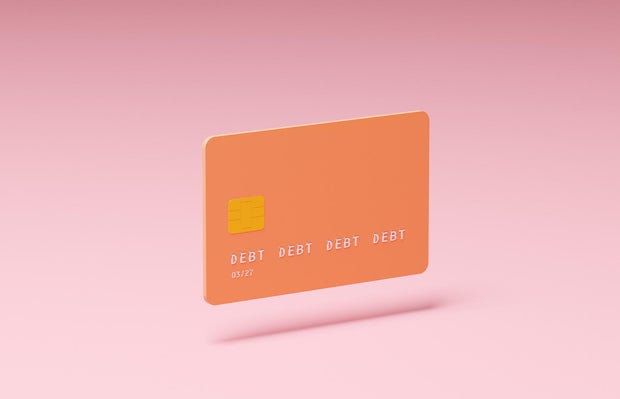How to pay less interest on credit card debt in 2025
Credit card debt has never been more crippling. With interest rates now hovering near 23%, cardholders are seeing their balances grow at record speed. The average American has over $8,000 in credit card debt — and the daily compound interest makes each month's bills and minimum payments harder to handle.
But even in this high-rate environment, you have options to reduce interest charges. Smart strategies such as getting the right balance transfer card or debt consolidation loan can put you back in control of your finances.
We consulted financial experts about the best ways to lower your credit card interest in 2025. Below, we'll detail five effective ways worth exploring this year.
See what debt relief option can improve your financial situation here now.
How to pay less interest on your credit card debt in 2025
The industry professionals we interviewed highlight five practical ways to pay less interest on your credit card debt this year:
Get a balance transfer card with a 0% APR offer
"One of the most effective strategies to pay less interest on credit cards is by obtaining a balance transfer credit card with 0% introductory APR," says Kristy Kim, CEO and founder of TomoCredit. These cards let you move high-interest balances to a new card and pay down debt without accruing interest for 12 to 21 months. Most balance transfer cards charge a fee of 3% to 5% of the debt that's being transferred. But the interest savings often outweigh this cost if you can pay off the balance during the promotional period.
Learn more about reducing your credit card debt here.
Negotiate with your current credit card companies
Buried in most credit card agreements is a little-known secret: You can often get a temporary interest rate reduction just by asking. Most major credit card companies offer hardship programs that can slash your rate — sometimes to 0% — for up to a year.
"These [debt assistance] programs are designed for customers who are struggling financially but are proactive about managing their debt," explains Chris Heerlein, CEO of REAP Financial. Eligible individuals get breathing room to pay down the principal balance faster. "The savings from [lowered] interest can be substantial … and [may help] you [avoid] resorting to drastic measures [such as] bankruptcy," he adds.
But to be successful, you must be prepared before contacting the company. Kim recommends gathering details about your payment history, credit score and competitor rates.
Send in extra payments whenever you can
"I counseled one family that took on a paper route and made $25,000 a year, [which] helped them out of significant debt in a few years," says Joyce Marter, LCPC, a licensed psychotherapist specializing in financial therapy. If you'd like to try a similar approach, Marter encourages asking yourself:
- Did you receive a small holiday bonus?
- Can you cut back on discretionary spending?
- Do you have a few extra hours a week to dedicate to a side hustle?
Every little bit you send to your credit card company can reduce the interest you'll pay over time.
Consider a debt consolidation loan
If you've tried to pay off debt on your own with no luck, Marter says debt consolidation may help. It could save you thousands by combining multiple credit card balances into a single loan, typically at a lower interest rate.
But Heerlein advises approaching debt relief companies with caution. "The biggest red flag is [companies requesting payment first]," he highlights. Legitimate ones deliver their promises before charging you. And remember, debt consolidation focuses on restructuring what you owe — not removing it. So, watch out for any company guaranteeing erased debt.
Use the avalanche method to minimize interest charges
"[If you're looking for] a more methodical repayment plan, the avalanche method is a top option," highlights Kim. This involves directing extra payments toward the card with the highest interest, but still making minimum payments each month on your others. By tackling high-interest debt first, you'll reduce the daily compound interest that makes credit card balances grow so quickly.
The bottom line
Debt doesn't have to be overwhelming forever. "Prioritize paying off credit card balances aggressively, even if it means delaying other financial goals," advises Kim. The interest on credit cards often outweighs potential investment returns or savings benefits.
Still not sure where to begin your debt payoff journey? A financial advisor can assist. They can help choose the best approach while ensuring you maintain a small emergency fund to prevent future credit card debt. Whether you opt for balance transfers, negotiate with creditors or pursue debt consolidation, taking action now prevents your balances from growing even larger tomorrow.




